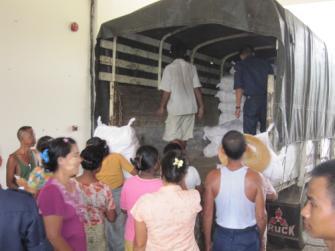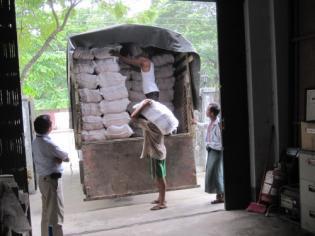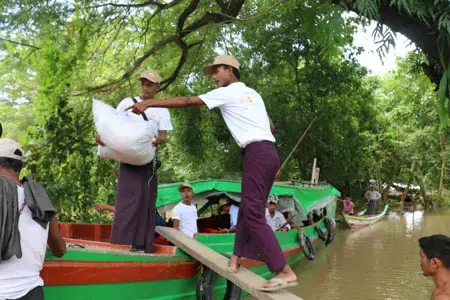As part of the UN collective efforts to respond to the humanitarian situation in Rakhine, UNFPA provided 2,000 Dignity Kits to the Ministry of Relief, Resettlement and Social Welfare on 15 June to be distributed to vulnerable women, especially those who have become homeless and reside in camps in Buthidaung, Maungdaw and Sittwe.
Dr. Hla Hla Aye, Assistant Representative of UNFPA handed over the Dignity Kits to representatives of the Ministry of Social Welfare, Relief and Resettlement at the Department of Fire Services in Yangon. Each kit contains essential items for women in emergency to meet their basic daily needs, ensure their health well-being and preserve their dignity. The kits were sent to the Yangon airport for shipment to Sittwe.
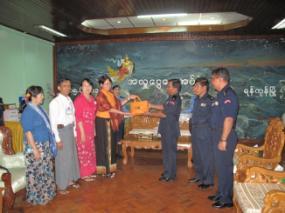
Action in the field
In addition to the dignity kits, UNFPA jointly with the Myanmar Medical Association (MMA) and township health authorities provides life - saving maternal health, obstetric care and new born care through five mobile clinics in Rathedaung and southern Buthidaung. UNFPA will soon provide additional reproductive health medicine, supplies and kits to boost the capacity of the mobile medical teams to be able to meet the needs of the affected population. Given its unfavourable health and development indicators, Rakhine has been identified as one of seven states/ regions of the UNFPA Programme of Assistance to Myanmar (2012-015). Support to Rakhine State is based on two situation analyses conducted jointly by UNFPA and UNHCR in 2007 and 2010.
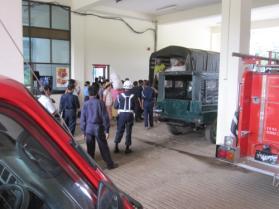
Humanitarian assistance, preparedness and response
Since Myanmar is a disaster-prone country, UNFPA has placed emphasis on emergency preparedness and response in the context of its mandate. Training has been provided to a large number of humanitarian actors from Government and civil society to be able to deliver minimum initial service package in case of emergencies. Strategies and plans for emergency preparedness focus on life-saving reproductive health services, protection of women and prevention and management of gender - based violence. Activities include pre-positioning of essential medical supplies and commodities and training of rapid response teams to be deployed to affected areas in case of natural and man–made disasters.
Well-designed humanitarian response programmes adopting participatory and community-based approaches have planted seeds for development. The Women Friendly Spaces (centres) established by UNFPA in the aftermath of Cyclone Nargis have proved to be viable models for women’s empowerment. These centres provide an integrated package of support to women including skill-development, micro-loans, income generating opportunities, psycho-social support and health including reproductive health education, counseling and referral. Currently, there are six women friendly spaces in Labutta and Yangon. Five more are planned to be established in 2012-2013.
|
|
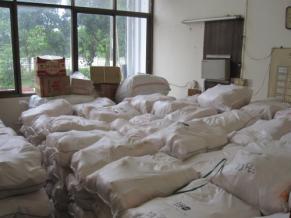
|
|

